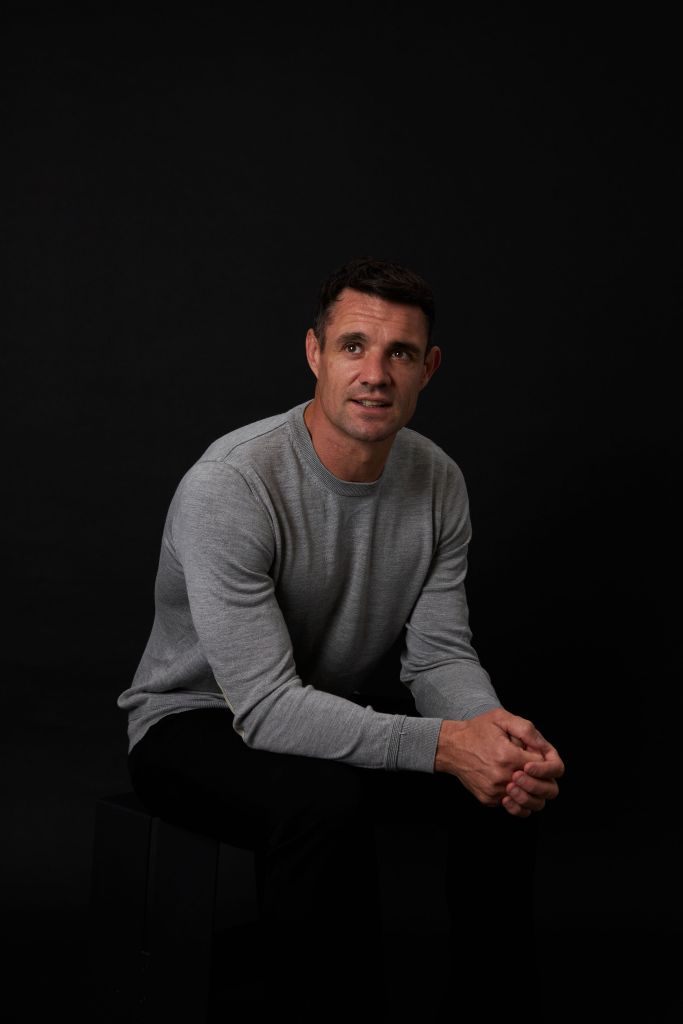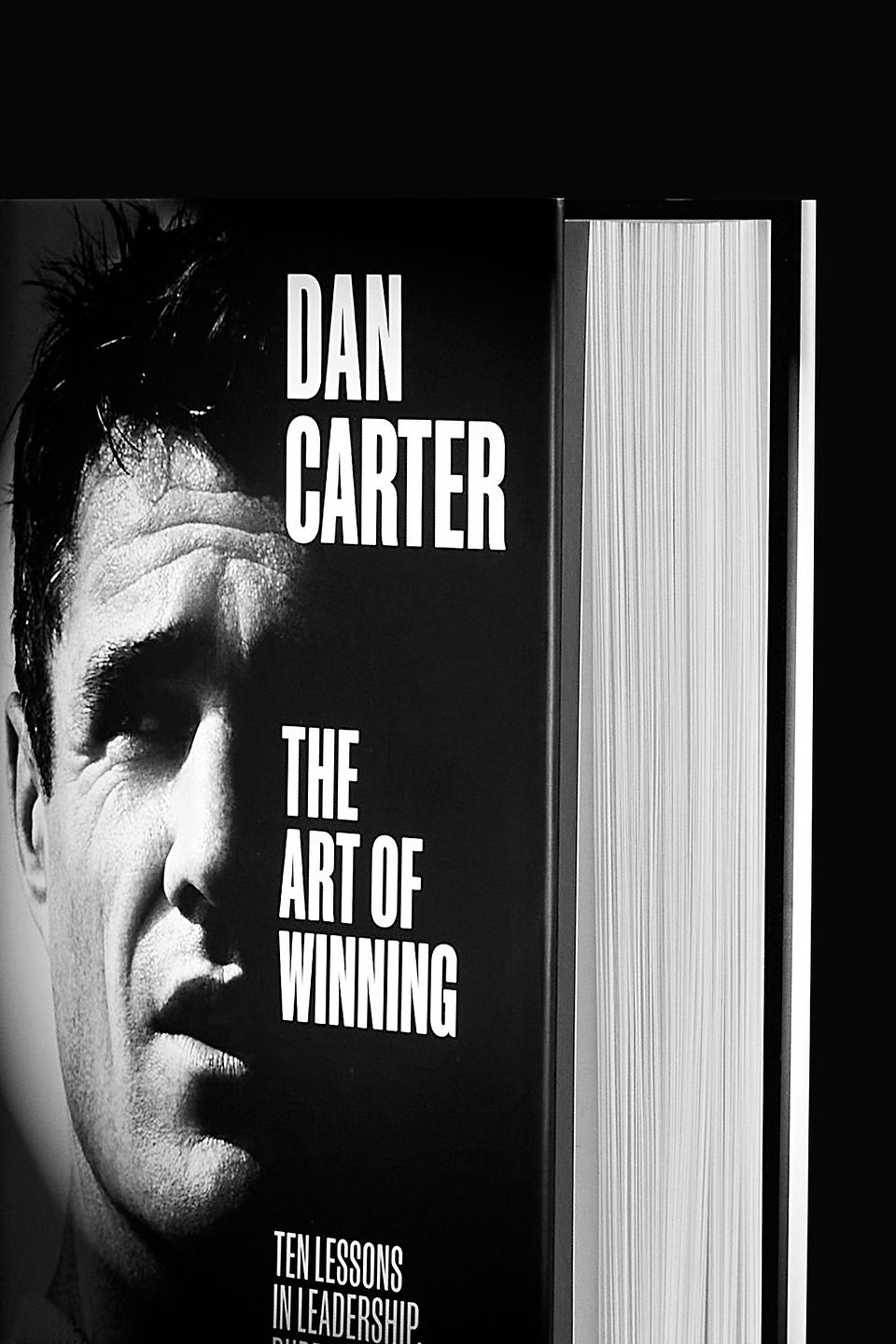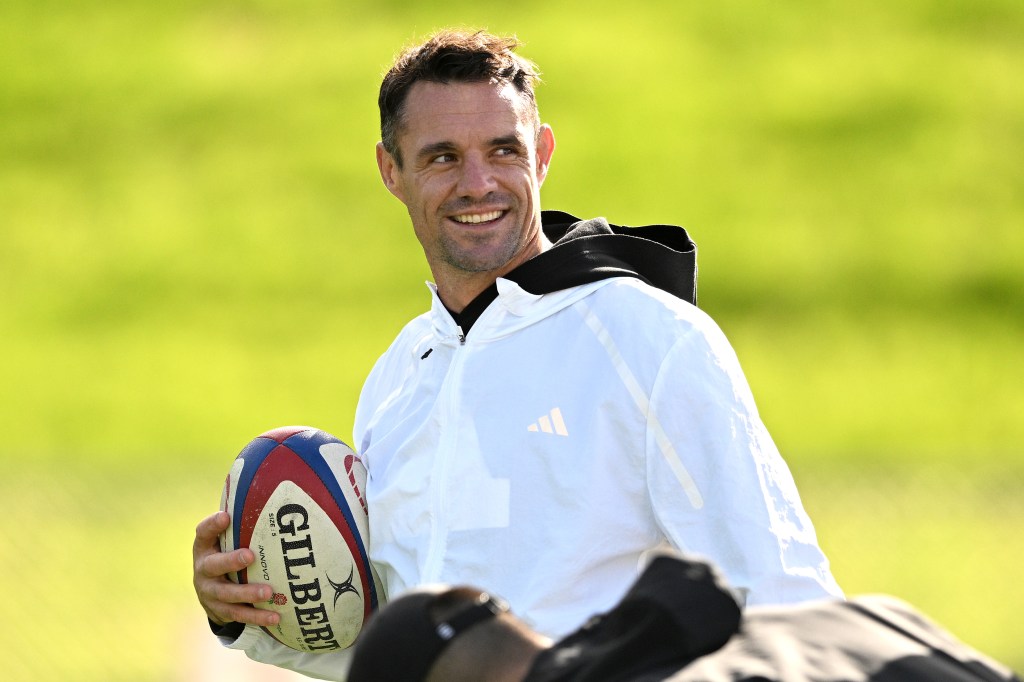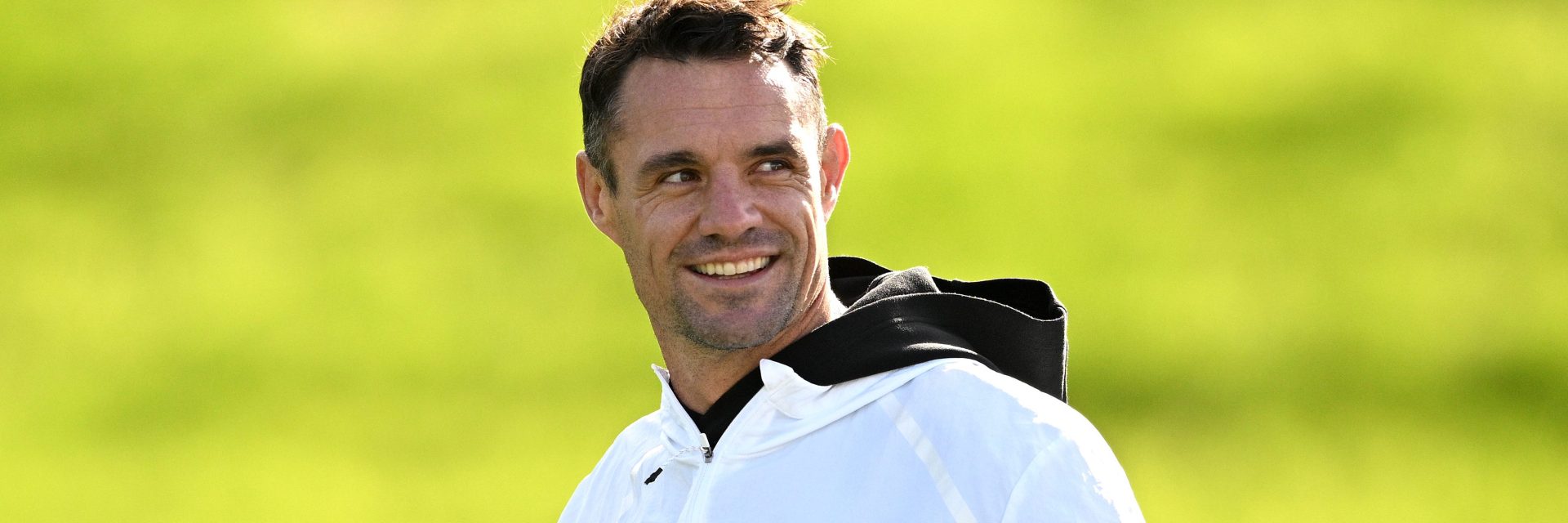Test rugby’s all-time highest scorer, Dan Carter, learned to treat pressure as a privilege – and it turned his team around on the world’s biggest stage.

Dan Carter is speaking live at the Forbes Australia Leadership Forum. Secure your seat here.
For a player who won 99 of the 112 rugby tests he ever played, you wouldn’t think that dealing with setbacks was going to be a key takeaway from All Blacks star Dan Carter’s career.
But the awful truth for the New Zealand legend was that two of those 13 defeats were in the biggest and most important games of his early career – the 2003 and 2007 Rugby World Cup semi- and quarter-finals.
To all the world, he and his red-hot-favourite teammates were “chokers”, flat track bullies. What they did next forms a key part of his new book, published today, The Art of Winning and will feature in his presentation at the Forbes Australia Leadership Forum on 3 August.
“There were some serious problems in the camp. We had the tag chokers. But one thing we realised was that we didn’t embrace and enjoy pressure. We liked beating teams by 40, 50 points, but when we were behind, we didn’t embrace and enjoy those moments.”
For all the hours on the training paddock and in the gym, they weren’t spending time on the question of what happened inside their minds when the heat was on. “So we spent the next four years learning what our mind does in pressure situations. Building some tools like breathing techniques.”
He remembers looking around the changing room after the 2003 World Cup defeat at the hands of the Australians, seeing the emotion on the faces of the older players who knew they wouldn’t be playing in the next one. It motivated the 21-year-old, and his teammates, to work even harder to make sure they made it to the next one to avenge the loss.
“Our hot-favourite team was suddenly the worst performing All Black side in the history of rugby world cups.”
Dan Carter
“That gave me motivation as a 21-year-old to make sure I worked really hard for the next four years,” says Carter. “But what we didn’t do was to look back at 2003 and why we were unsuccessful. So we went to the 2007 World Cup as hot favourites again and were knocked out by France in the quarter-final (having led 13-3 at half time).
But it was also about learning to recognise what their teammates looked like when under stress. Psychiatrist Ceri Evans had developed a terminology around it and was brought in to teach the team.
“When you’re under pressure and you’re in what we call a state of red head, you’re off task, you’re not communicating well, you’re not thinking clearly,” says Carter. “You can go into one of three things: freeze, fight or flight. Guys that freeze, like myself, we’d go quiet, we’d go within ourselves. And I’m the playmaker, so when I go into a state of freeze, I’m not communicating, I’m not helping my team. Other guys go into a state of fight. They start yelling at the referee, at their team mates. They want to fight the opponents, and they’re not of any help to the team. Other guys go into a state of flight. They want out. Their hamstring goes a bit tight and they want to be subbed.”

“The thing you’ve got to learn is you’ll never go through a game of rugby without going into a state of red, so instead of running around the field for five minutes in a state of fight you understand what you’re going to do when you’re under pressure. So you try to get back to a state of blue where you’re calm, clear and decisive, with good communication. You need a tool to go outside your body.
“What I used to do was whack myself on the leg. If I’d missed a couple of kicks, instead of running around thinking about the misses for the next five minutes, I’d whack myself on the leg as a trigger. ‘Right, next task. What do I do next? Catch the ball, run square.’ All of a sudden, I’m back in a state of blue. So I was only in a state of red for one minute instead of five.”
And they each needed to be on the look out for when teammates were going into a state of red head. They’d ask them questions to get them out of it.
“If he went a bit quieter than normal, then you’d know he was under pressure. You’d know you needed to snap him out of it with a simple question about the scene in front of him.”
Dan Carter
And what would he say to his captain Richie McCaw if he saw him getting hot and bothered? “He’s a bit of freak who didn’t go into a state of red very often. He’d have 15 opponents trying to belt him at the bottom of a ruck then get up and have an intellectual conversation with the referee, his eyes dripping with blood. If he had any red head it would be a state of freeze.
“When I was under pressure and would go quiet, he’d try and snap me out of it. ‘Where’s the space?’ You want to be attacking where the space is. So I’d whack myself on the leg. ‘Okay next job. Focus. What do I need to do now? What’s in front of you?’”

The hot-favourite All Blacks won the next two World Cups.
When Carter retired from rugby in 2020, he went through some severe soul searching. He had no purpose and was full of self doubt. “I went from high school to playing professionally so there was a lot of self-doubt about not being well educated. So there was a lot of fear about what this next chapter of my life looked like.
“We realised that pressure is a privilege to have in your life. The most successful people live with pressure every single day.”
Dan Carter
“I ended up doing some online speaking sessions with Astra Zeneca who in 2020 were designing a Covid vaccine and wanted to learn about dealing with pressure. And there was a surgical team out of Oxford University who wanted to learn a little bit abut how we [the All Blacks] interacted in high pressure situations. So I soon realised I had a different type of education.”
Carter, who earned 1.5 million euros a season in the latter years of his career, also has interests in Glorious Digital, a blockchain/NFT art start-up; subscription fashion business Asuwere; and a luxury department store, Faradays, based in Auckland.
The Art of Winning: Lessons in Leadership, Purpose and Potential.



